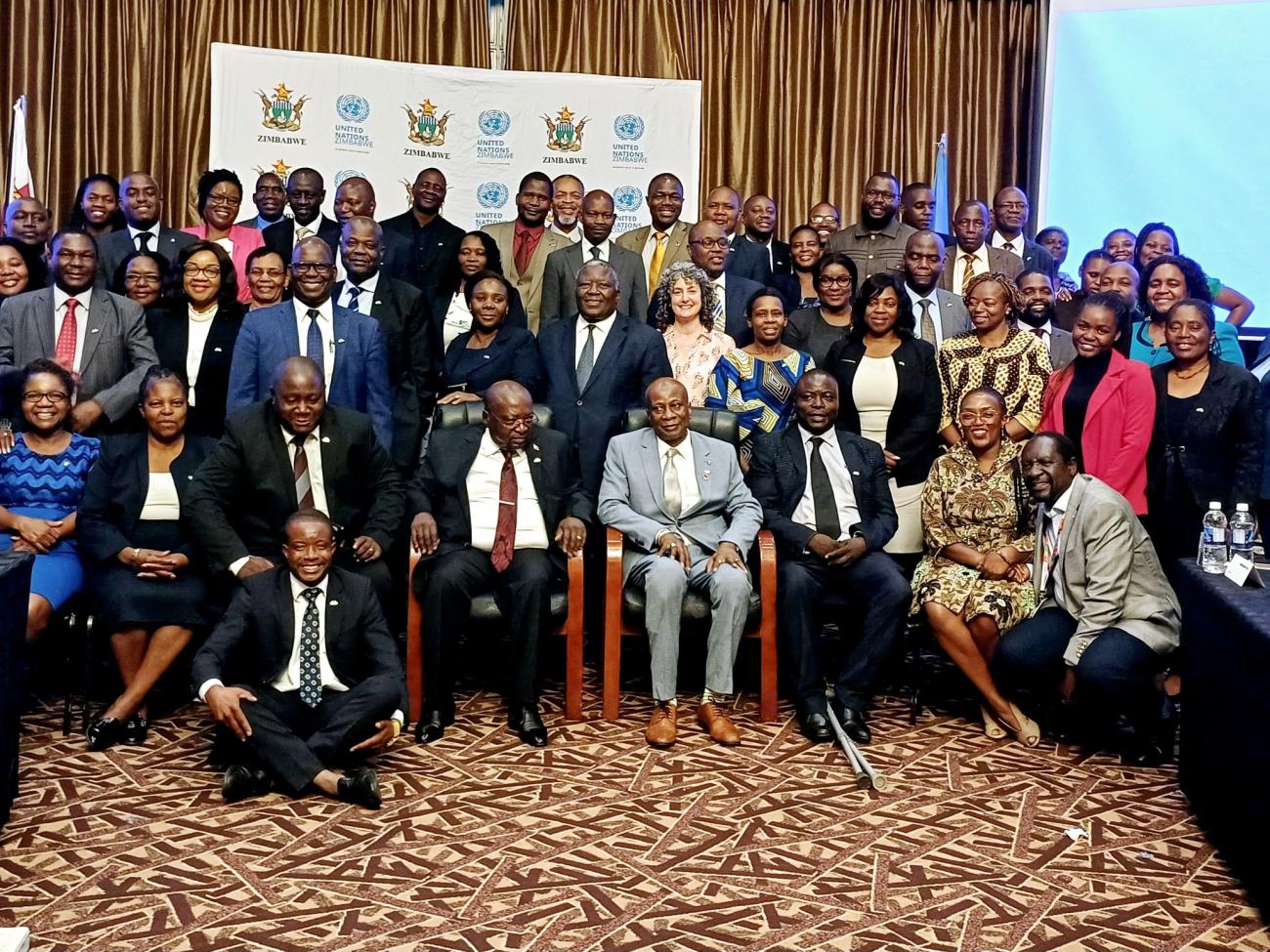The funding requirement of the Cooperation Framework is US$2.8 billion over its five-year period (2022-2026) with US$902 million mobilized.
Over 70 officials from the United Nations Country Team (UNCT), Government Ministries, Development Partners, the Private Sector and Civil Society gathered in March to validate the 2023 Zimbabwe United Nations Sustainable Development Cooperation Framework (ZUNSDCF) Annual Report and to agree on 2024 priorities that will contribute to achieving the Sustainable Development Goals (SDGs).
“It is encouraging to note that the review indicates that significant progress has been made across all 14 thematic priority areas, accompanied by valuable lessons learned, but a lot still needs to be done,” Edward Kallon, UN Resident Coordinator said during the opening of the Joint Steering Committee meeting.
The funding requirement of the Cooperation Framework is US$2.8 billion over its five-year period (2022-2026) and during the past two years, US$902 million has been delivered. Fifty-five percent of the delivery has been through joint initiatives and/or programmes, Mr Kallon said.
The ZUNSDCF entered its second year of implementation in 2023. Twenty-five (25) UN entities, of which 15 have a physical presence in Zimbabwe, are implementing the Framework.
One of the significant milestones is the Debt and Arrears Clearance process facilitated by the former President of Mozambique, Joaquim Chissano, and championed by the African Development Bank (AfDB) President, Akinwumi Adesina. The UNCT and other partners actively supported the Government in the process to develop indicators and benchmarks for economic and governance reforms, which include compensation of the former commercial farmers and BIPAs (Bilateral Investment Promotion and Protection Agreements).
Officially opening the meeting, Chief Secretary in the Office of the President and Cabinet, Dr Martin Rushwaya said the ZUNSDCF is consistent with the collective aspirations and determination of the people of Zimbabwe to achieve an empowered and prosperous upper middle-income society by 2030.
“It is therefore commendable that Government and the United Nations have a shared commitment to leave no one and no place behind through delivering concrete results that ensure inclusive participation and reaching the people typically left behind the furthest. We must all work together to accelerate development progress during the Decade of Action as we work to recover better and stronger from the impacts of climate change and global geo-politics,” he said.



















